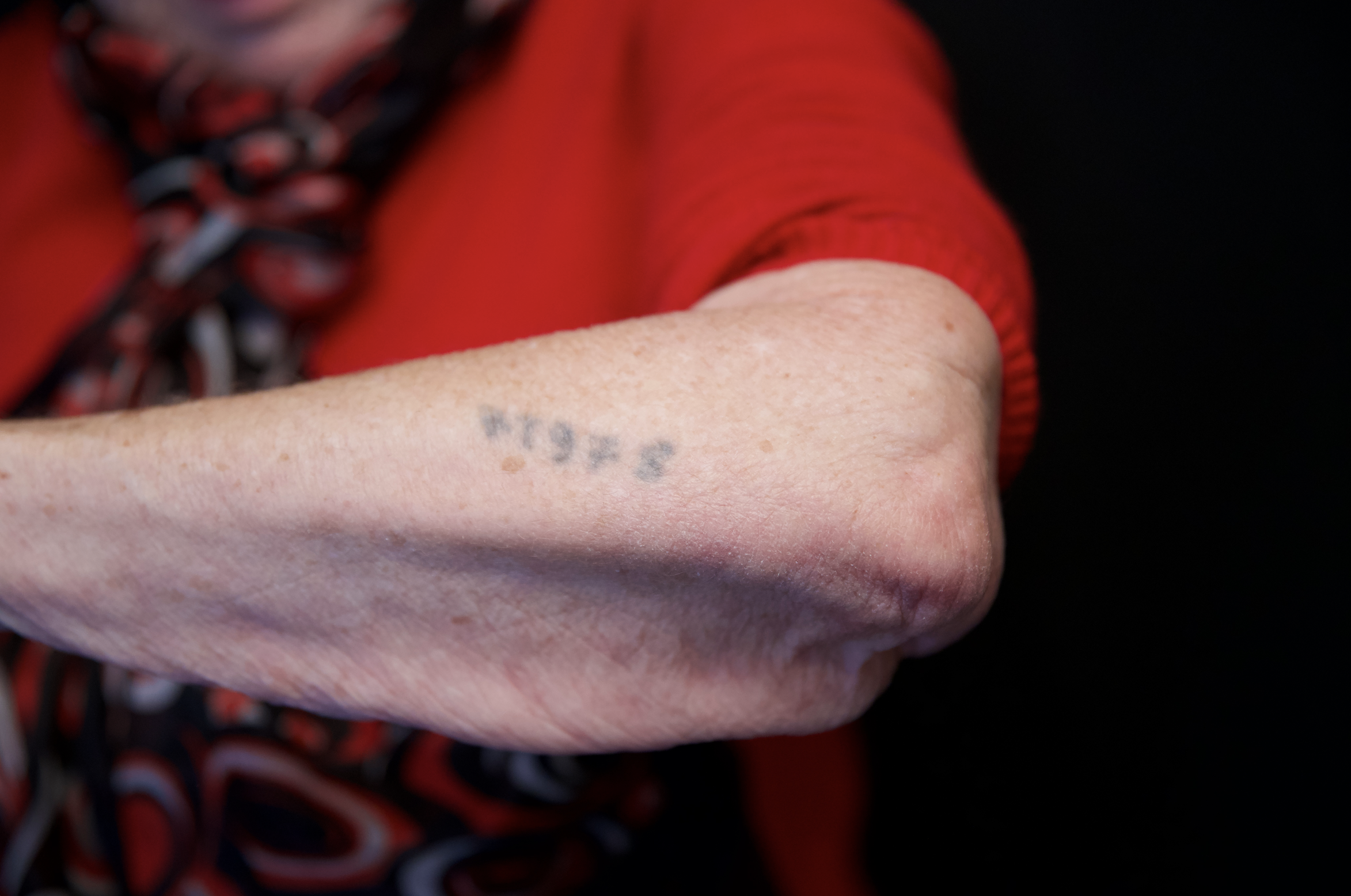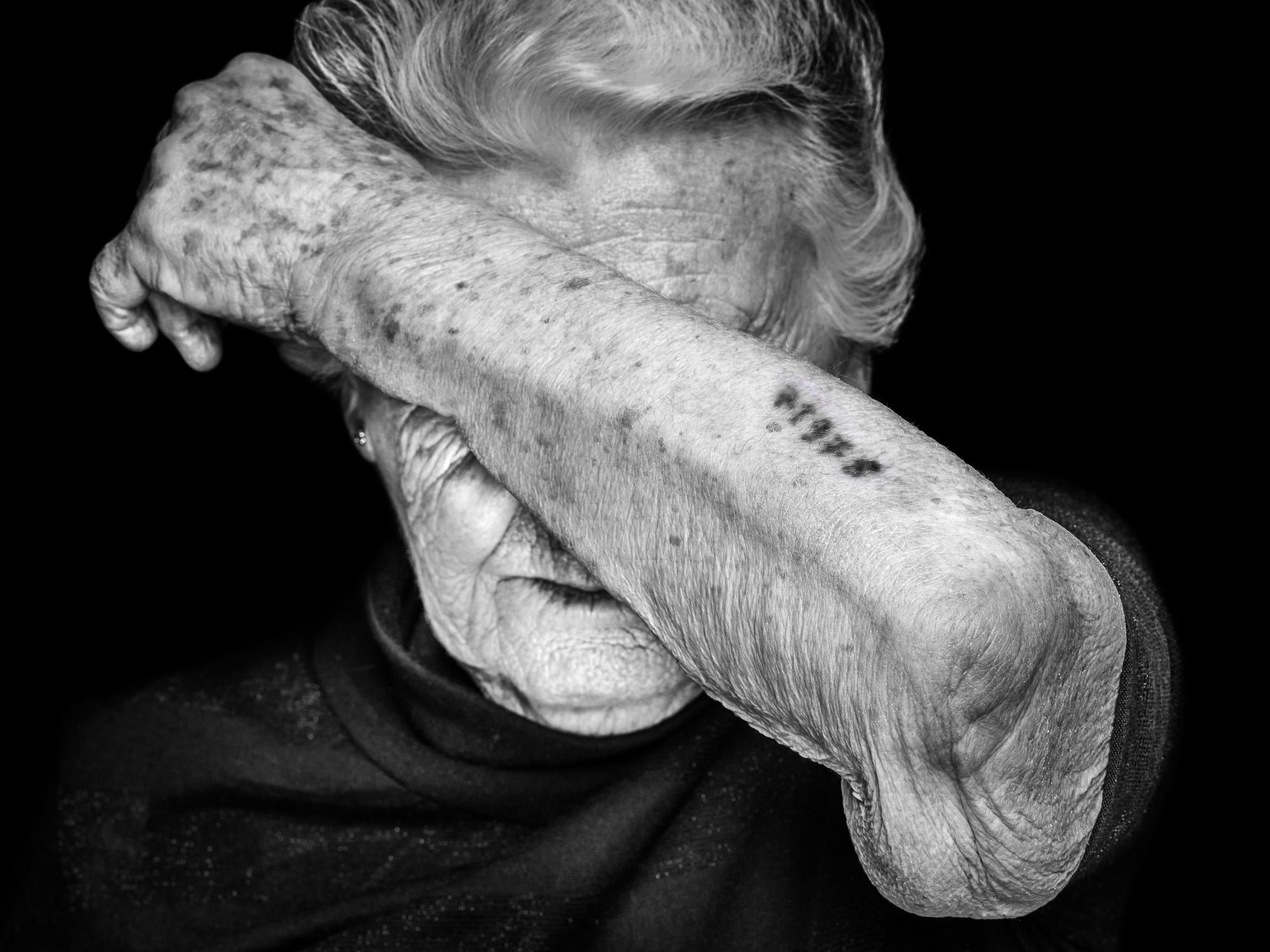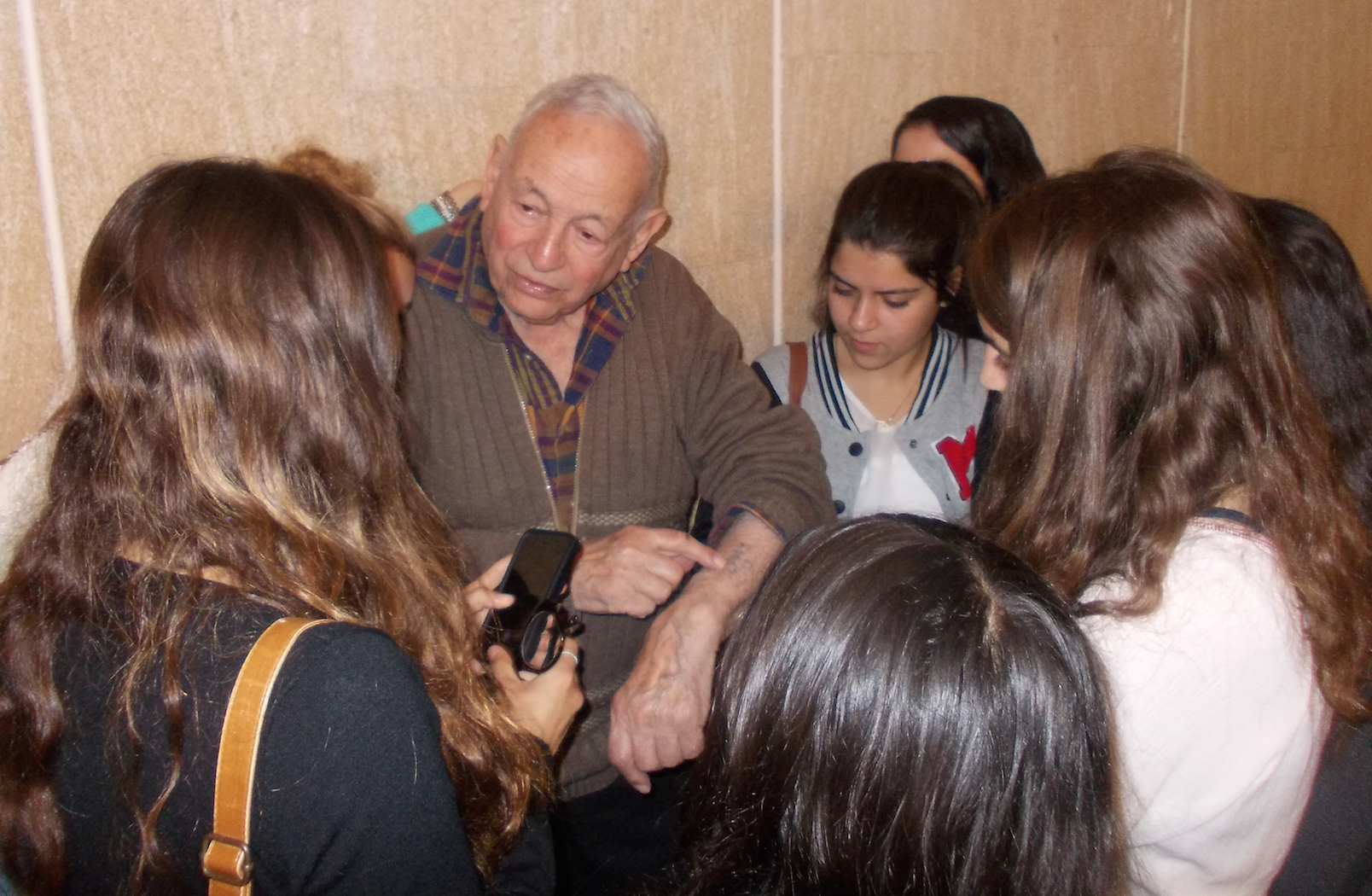
Holocaust survivor: Nina Weil’s story touched thousands of schoolchildren

Nina Weil, one of the last Holocaust survivors in Switzerland, died earlier this month. Anita Winter from the Gamaraal Foundation looks back at the life of a woman who saw it as her duty to share her story with younger generations.
Shortly before her death aged 91, Weil had to witness how people, also in Europe, cheered or remained silent about a mass killing of Jews.
For her, this development must have come as a particular shock. Over many years, Weil had spoken to thousands of schoolchildren and students about the horrors of National Socialism; her life-story is even included as part of a permanent exhibition at the National Museum in Zurich.
Weil died in canton Zurich on November 9 – the 85th anniversary of the Night of Broken Glass.
Long silence
For a long time, Weil did not speak about the unimaginable suffering which she must have experienced. Only when she was 30 could she tell her husband for the first time about how the German tanks had rolled into Prague – where she lived at the time, after being born in 1932 in Klattau, modern-day Czech Republic.
She told of how the segregation of Jews began and how she was deported, along with her mother, to a concentration camp in 1942. Weil was 12 when the number 71978 was tattooed onto her arm in Auschwitz.

She spoke about this traumatic experience years later in an interview. “I cried a lot,” she said. “Not because of the pain. But because I didn’t have a name anymore, I only had a number. My mother promised that as soon as we were free, I would get a thick armlet so nobody could see the number anymore. I could also then take dance lessons, she said. But I got neither an armlet nor dance classes. To this day I still have the number.”
Telling is remembering
In the past years Weil told her life story again and again. The years of silence had been replaced by a conviction that she had to bear witness. For schoolchildren, teachers and students, she not only told her story – above all she moved people.
She spoke about how her mother died of exhaustion in Auschwitz, and how at that moment Weil realised that she was now forever left to her own devices. She tried to explain the special colour of the smoke rising from the crematoriums.
She described with outrage the cruelty of the guards, how they riled up their dogs against the prisoners, how they shot them. She described how she was humiliated and disenfranchised. And she told the impressive story of how she managed to get through a selection by concentration camp doctor Josef Mengele, of how she survived Auschwitz and the death march.
“We walked and we walked,” Weil said of the days leading up to liberation. “It was January. We had no food. If you were lucky, you found some grass at the side of the road. Snow was our water. We came to a big farm and we were able to sleep there in the stable.”

More
The last Swiss Holocaust survivors
No place for hate
Weil always made the point that anti-Semitism and any form of hate should have no place. Hate and indifference sealed the fate of millions of Jews in Europe – a crime against humanity which remains to this day almost inconceivable.
At the end of the war, Weil was 13 – roughly the same age as the children to whom she would later tell her story, in Switzerland and around the world. After Auschwitz, she was raised in an orphanage – where she also met her future husband – and after training as a laboratory technician she went to work in a hospital in Prague.
In 1968, when Russian soldiers entered Prague, Nina Weil and her husband were by chance visiting friends in Uster, near Zurich. After the repression of the Prague Spring they were granted asylum in Switzerland, and she began working as a lab technician at Zurich University Hospital.
Weil loved her job. But visiting classes and educational institutions remained her life task and passion. Each time she spoke in front of a group, it was stressful for her, but she saw it as her duty to speak about the Holocaust, so that something like that could never, ever happen again.

More
Why it’s never too late to learn from Holocaust survivors
A few years ago she said in an interview: “young people should know about Europe’s history, they should know what happened”. We are obliged to learn lessons from the Holocaust and pass them on from generation to generation, she always said. We should never forget, we should never become indifferent. Never.
During our last conversation Weil reflected that she was “one of the last Holocaust survivors”. Her person and her story will be missed in classrooms.
This text originally appeared in the Neue Zürcher Zeitung newspaper. The author is the founder and president of the Gamaraal FoundationExternal link.

In compliance with the JTI standards
More: SWI swissinfo.ch certified by the Journalism Trust Initiative

























You can find an overview of ongoing debates with our journalists here . Please join us!
If you want to start a conversation about a topic raised in this article or want to report factual errors, email us at english@swissinfo.ch.